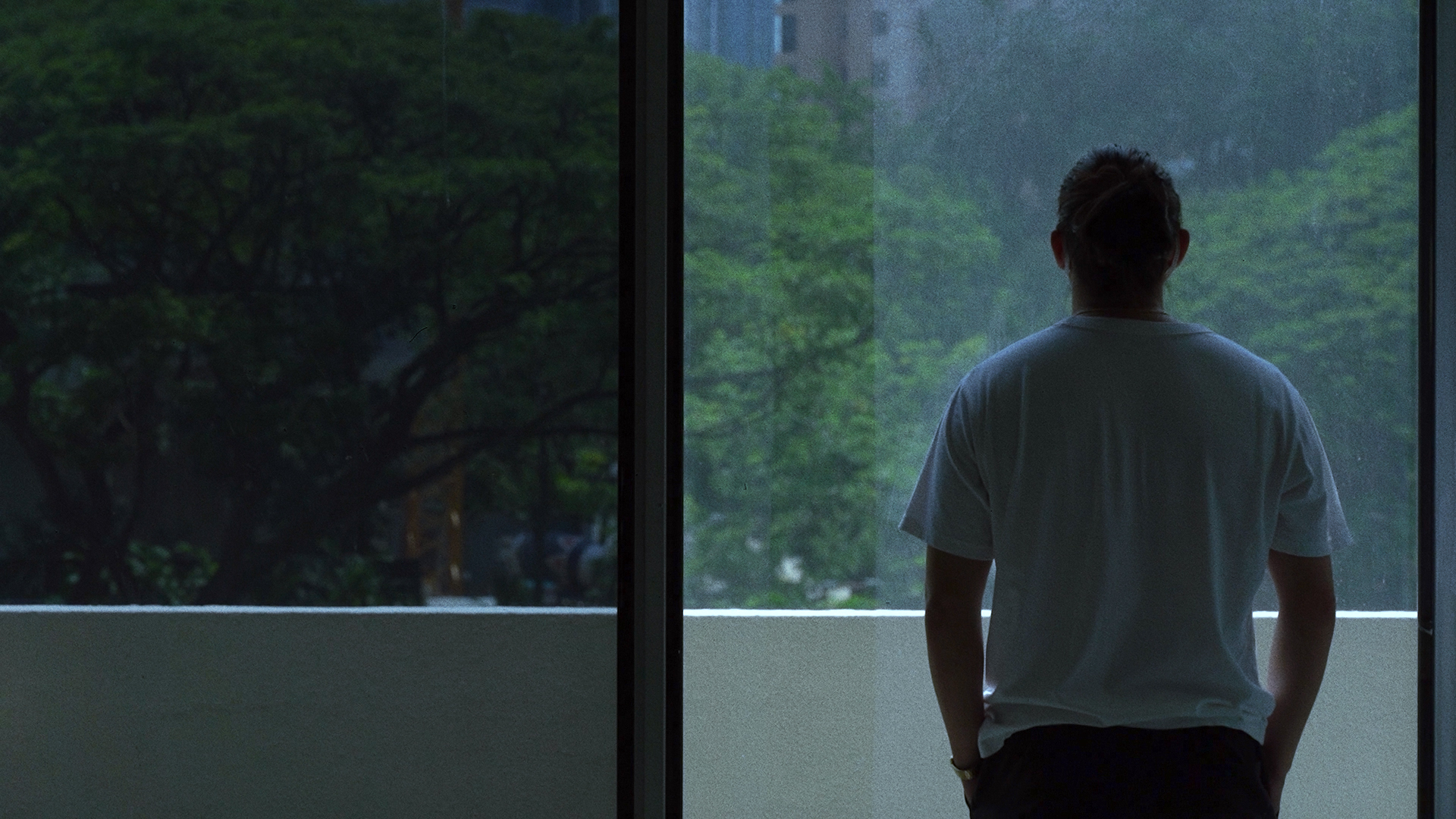Top image by Marisse Caine.
Last week, Leonard Teo Min Xuan, the administrator of the obscene chat group SG Nasi Lemak, was sentenced to a year of mandatory treatment. The verdict came after a report by the Institute of Mental Health (IMH) noted that he suffered major depressive disorder that impaired his judgment, and led to him committing the offences.
Teo’s case brings to light important questions on whether more sex offenders should be made to go through mandatory treatment, and whether we should be treating sex offences as a public health issue as opposed to a criminal one.
Psychotherapy and addiction recovery can be important tools in the treatment of sex offenders, and many professionals in the field believe that a treatment approach can help to address the underlying social issues behind rampant sex offence cases.
To gain further insight into these issues, we speak to Andrew da Roza, an Addictions Psychotherapist at Promises Healthcare, who has experience working with sex offenders. He explains why we should explore treatment as a default response to sexual offences:
Rice: Do you advocate for sex offence cases to be treated as mental health issues, rather than criminal offences?
Andrew da Roza (ADR): Where possible, yes. But we need to differentiate the presentations of sex offenders.
It is possible to separate sex offenders into two categories: sex offenders who are unlikely to respond to treatment, and individuals diagnosed with compulsive sexual behaviour disorder (CSBD)—who are susceptible to treatment. CSBD is defined as an impulse control mental disorder by the World Health Organisation. There are different therapists and therapeutic interventions for these groups.
If a client has CSBD and their sexual behaviour is confined to Internet porn only, and this has led them to join “homemade” platforms like SG Nasi Lemak, it is likely that treatment will be effective. It does depend on their motivation and their response to therapy.
However, clients who present with more severe forms of sexual behaviour—such as rape, sexual assault, and the exploitation of vulnerable people (such as children, the elderly, and those with severe mental or physical disabilities)—treatment is less likely to work.
In some cases, the only option may be to protect society from their behaviour by incarceration and close monitoring in the community.
Rice: How do we differentiate between sex offenders who deserve treatment, and those who don’t?
ADR: A sex offender who is unable or unwilling to take on recovery will commonly present with personality disorders such as Antisocial Personality Disorder.
They are likely to lack remorse, guilt, empathy and compassion. Their actions are exploitative and tend to be malicious and premeditated. They may also be indifferent to the consequences of their actions and may feel entitled to act in the way that they do.
These individuals are less likely to connect and cooperate with their therapist or see that their behaviour is harmful, and therefore, do not have the motivation to change.
Recovery work involves joining peer-led, 12 step recovery groups like, Sex and Love Addicts Anonymous and Sexaholics Anonymous. Such sex offenders are likely to be resistant to joining or even be disruptive within such groups.
Individuals with CSBD who do not suffer from Antisocial Personality Disorder tend to be more suitable candidates for treatment.
They may have underlying mental health issues that led them to sexually acting out. These could be, for example, major depressive disorder; general or social anxiety disorder; borderline personality disorder—which are treatable. Some may also suffer from addictions.
These individuals tend to be significantly distressed by their sexual behaviour and the damage it is causing in their lives and in the lives of others. They may often be ashamed and even loath this side of themselves. The therapist will then seek to treat their underlying disorders, as well as CSBD.
Rice: How does one get a Compulsive Sexual Behaviour Disorder from watching porn?
ADR: Broadly, the same dynamics occur across addictions—whether it be porn, gambling, or drugs. Some of the factors that make a person vulnerable to CSBD also make them vulnerable to other addictions.
Compulsivity occurs when the “reward centre” in the brain is “hijacked” by the behaviour, such as porn watching, if the behaviour is frequently repeated over long periods of time.
Growing tolerance and withdrawal will feed compulsivity, so over time, more porn of more novel, exciting, disgusting or dangerous nature will be needed to get the same effect.
The porn industry knows this, so they will ensure that a porn user transitions from one porn genre to another until they land on problematic genres such as non consensual porn, revenge porn, under age porn, and violent and abusive porn—which were the genres discovered on the Sg Nasi Lemak chat site.
As the brain gets desensitised to the genres, the porn user may eventually find themselves watching a genre they don’t even enjoy or a genre that would have disgusted or even alarmed them in the past.
For example, I have worked with men who are not homosexual but end up getting aroused by homosexual porn because of this spiral.
There are also men who have watching child pornography, but who in the “real world”, would never consider acting sexually with a child or fantasize sexually about them.
However, if someone goes straight to this kind of content, it may be a much more complex issue that may not be a result of CSBD.
Rice: It sometimes feels like the online space is becoming increasingly dangerous, and filled with places like Sg Nasi Lemak. Why is this happening?
ADR: To understand why these spaces are rampant, we need to look at why they grow in the first place. Porn addiction cannot be looked at in a vacuum, as it is tied to a spectrum of familial, religious, social and cultural issues.
The first of which is the lack of appropriate sex-education throughout children’s development.
Currently, sex-ed is not taught in schools at every level in a way that appropriately addresses sexuality, intimacy, respect, and consent. And when sex-ed doesn’t teach these things, but only emphasizes how ugly some STDs are and the dangers of pregnancy, children will internalise the notion that sex is always a disgusting, horrible, dangerous and fearful act.
Without appropriate sex education, children and teens turn to porn for their “education”. Porn is “educating” children to objectify men and women, to accept and normalise non-consentual sex, and to believe that abusive sex is appropriate. It may also give children unrealistic expectations or demands of their future sexual partners.
Similarly, if sex is a taboo topic at home, it’s hard for children and teens to gain a healthy understanding of consent, sexuality, sensuality and intimacy. Parents who only talk about the dangers of sex and solely focus on sexual abstinence take the risk of further instilling the idea that sex is ‘dangerous’ and ‘bad”, immoral and unhealthy. Their children’s healthy sexual development will suffer and this may lead to fractious, difficult and unsatisfying relationships when they become adults.
Rice: Why do we see more men turn to these toxic outlets, like porn or group chats, as compared to women?
ADR: If we add the lack of adequate sex education, with socially perpetuated toxic masculinity, we have a recipe for disaster.
Social and cultural norms pressure boys to be strong, tough, self-reliant, and to show little emotion. This creates men who feel isolated, lonely and incapable of expressing and managing their emotions in a healthy way. They become vulnerable to “self-medicating” their loneliness, emotional suffering and frustrations by turning to addictions like gaming or porn.
Another issue is that male dominant environments often make matters worse. From NS to boys schools, the prevailing narrative towards women can quickly turn to objectification, disrespect, competition and conquest. And in chat groups like SG Nasi Lemak, men egg each other on by normalising and encouraging what is abnormal and destructive behaviour.
Rice: How do we start addressing these sex offence cases with public health in mind?
ADR: If we treat all sex offenders the same—as criminals—we miss the opportunity to treat those who can be helped; and we risk ignoring the social and educational issues that may be at the root of the problem.
It would be helpful for all men who are investigated for sex offence cases, such as being online predators, to be given a psychiatric evaluation.
From there, clinicians can determine whether the offender can be treated and is willing to take action to recover. If they have spiralled in their sexual behaviour because of CSBD and other conditions, they should be given an opportunity to recover. In these cases, a mandatory treatment order may be helpful.
If they are simply incarcerated without treatment, they are likely to relapse on their release, once again exposing the community to danger.
Rice: On a macro level, how do we start addressing the increasing number of sex offence cases in society?
ADR: A socio-cultural approach needs to be taken to target underlying social issues. This should start with research on porn use and its effect on children and youth.
For example in collaboration with schools, the SAF, and institutes of higher learning, independant researchers could ask students anonymously, what they know about sex, what sex means to them, whether they use porn and if so, when they started, and so on.
Research like this will give the Government and those in the mental health treatment space an idea of the scale and severity of the public health problem, and what resources to apply to it.
This research can also be used to create robust sex eductation initatives, to teach children, youth and adults about mental health, sex, sexuality, sensuality and intimacy; and how to avoid, manage and seek help for CSBD when it arises.
With this information, men can learn to be more aware of their peers’ behaviour towards women, call each other out on disrespectful and damaging behaviour, and most importantly–be aware when they themselves are falling into toxic spirals.







